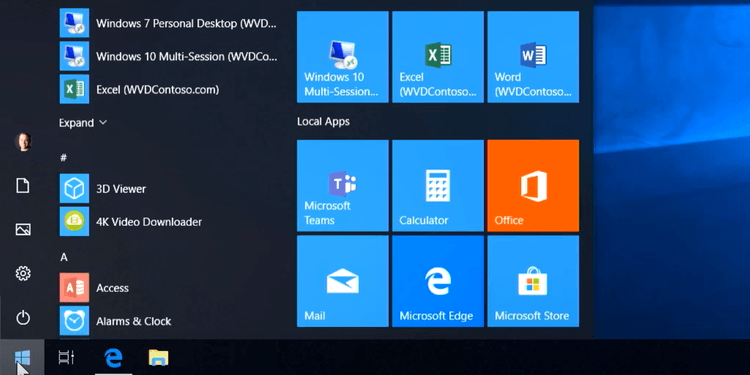In 2009, Node.js was first launched. It was a powerful program marketed to web developers and programmers who develop and execute Java codes on various web applications and websites. Node app development entails a freely available (open source) server environment, used to execute Java codes without an Internet browser. It has the capacity to run in the backend or background; and is compatible across platforms and operating systems.
Despite the ever changing technologies, Node.js has managed to still be relevant and useful for its users. It is used in different proportions across industries; some companies use it more than others. However, almost every company requires the usage of Node.js at some point or the other. Node.js has been the popular tech stack choice for developers working on projects related to messenger apps, E-commerce websites and mobile apps, streaming websites, etc.
Post Contents
Why has Node.js been popular?
In today’s world, Node app development has become a need for developers. Node.js establishes a two way communication framework between client and server. Usually, this communication ceases after every request is made by the client, and delivered by the server. Node.js builds a connection between the server and the client side browser; and helps to improve the throughput and app/ website performance. Any possible delays or slower response time is negated with the application of Node.js development services. Here are some of the reasons which have made Node.js an obvious choice for web programmers and developers-
-
Caching
App performance and speed are significantly improved with the caching feature of Node.js. With the aid of this feature, relevant data is in storage, which can be accessed fast later if required by the server. User requests can activate the cache feature, and give high speed results.
-
Lightness
Node.js uses Google’s V8 Javascript engine, which makes it very lightweight and efficient in usage. This is built on C++. This is also the reason why Node.js is a very speedy user framework.
-
Cross Platform
Apps and websites developed with Node.js development services have the ability to function across platforms like Android and iOS. There is no need for developers to design different versions of the same app to function on different platforms.
-
Faster performance
Node.js is equipped to deal with many user requests at the same time. It has a single thread framework which makes it efficient and accurate in its results for user requests.
-
Scalable
The ‘event loop’ system of Node.js makes it a very scalable framework. It can be used by developers to scale up in case of larger projects.
-
Usage in various hosting services
Node.js has evolved with each passing year, and is updated with the latest technological trends. It is also now available for many hosting service providers.
The following are some of the advantages that developers have while hiring any Node.js development company to build the server-client framework. These benefits have stood the test of time, and are still relevant for users across industrial domains:
-
Modern Architecture
Node.js is popular as it supports the use of ‘microservices’ as part of modern architecture. Microservices enable smoother app development and higher scalability for apps and websites. An application has various subparts; which communicate with each other better due to the APIs (application programming interface) of microservices.
-
Reduced time to market
There are around 7,00,000 preset modules (Node package manager) on Node.js. This drastically reduces the time for web development, as these preset modules help developers to save time on mundane coding tasks. This also helps to improve the efficiency of developers.
-
Fast Playback
Node.js makes the backend environment of apps continuously streamlined and helps to improve loading speeds and delivery of results required by the users. Every app performance is continually judged by the users based on improvements after each update. Node.js brings a smooth user experience with faster and reliable app playback.
-
Open source community
As Node.js is an open source/ free software, users and experts worldwide have built many online forums, communities and knowledge groups to collaborate with one another. This enriches the developers’ knowledge as they are exposed to a global knowledge bank, where ideas are constantly shared for bettering app performance and improving web development.
Applications of Node.js
Here are some of the real world applications of Node.js-
-
IoT (Internet of Things)
IoT (Internet of Things) represents many devices and digital machines connected to each other for the exchange of data. This exchange can be accomplished without any human intervention. Node.js development companies utilize preset modules which can handle data exchange efficiently. In addition, because servers in the Node.js ecosystem can store a significant quantity of data, numerous requests can be serviced at the same time.
-
API servers
Node.js can easily convert Javascript codes to the JSON format. It can also handle many server and browser connections concurrently. This makes Node.js an ideal choice for the development of API (application programming interface) servers.
-
Real time applications
Node.js is capable of handling large data volumes which require quick response and shorter delays. For example- messaging apps, real time data sites, personal transport apps etc. Such real time applications use Node.js for their backend server environment, as it performs in real time, is quick and efficient.
-
Data streaming
As Node.js can support real time information, it is also suited for running data and media streaming apps like Netflix. These websites stream entertainment in real time for users, which requires the usage of multiple file uploads in real time. Node.js is applied in social networking sites, interactive e-commerce sites and real time interactive sites as well. It has minimal delays and a real time framework for data transmission between the browsers and servers.
-
DevOps Projects
Node.js can be utilized effectively to code parts of the application (microservices) for a smoother runtime experience by the users. This is at the core of DevOps- which builds continuously developing, evolving and agile software ecosystems for users. Maintenance and integration of softwares are easier by employing Node.js in DevOps projects.
-
Microservices Architecture
This architectural framework is used to build large and complex websites and applications. Many modules are built with intricate detailing and functions- which are later combined to a larger and complex app environment. Node.js is ideal to build these modules as it has lesser delays and a quick runtime response.
Conclusion
The relevance of Node.js in computing in today’s times cannot be stressed more. It is indeed the most reliable, efficient, user friendly and trusted tool for app development and maintenance. It has wide applications in real time data streaming, IoT and DevOps projects, building API server systems etc. Node.js has proven to be the secret sauce of building the most versatile and efficient apps compatible with the latest technologies and user demands. Although Node.js was initially developed in 2009, it still has user relevance due to its widespread applications.









